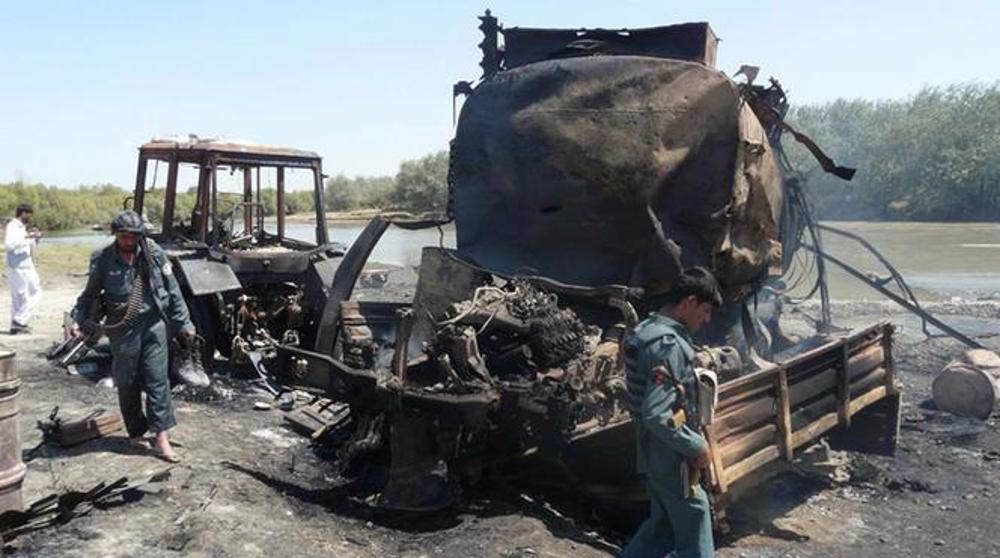
Photo shows the aftermath of a 2009 deadly airstrike on fuel tanks in the northern Afghan province of Kunduz
Strasbousrg, February 18 (RHC)-- The European Court of Human Rights (ECHR) has ruled that a German commander behind a deadly 2009 airstrike in Afghanistan did not act improperly, rejecting bids by the victims' families to seek damages.
The Strasbourg-based court on Tuesday ruled in favor of Germany in a dispute with Afghan civilians who challenged a probe by the Berlin government into the 2009 attack on fuel tankers in the northern Kunduz Province.
The ECHR said it "had no reason to doubt" the findings of German prosecutors and the ruling of Germany's Constitutional Court that additional witnesses were not needed in the case. The case was brought to the ECHR by an Afghan man who lost two children in the airstrike.
Abdul Hanan, whose sons, Abdul Bayan, 12, and Nesarullah, 8, were killed in the airstrike, argued that Germany violated his sons' right to life, as well as his right to file damages. "They martyred a hundred people; they bombed us unjustly, so how can they come to this unjust decision?" Hanan, a farmer, said by telephone from Kunduz after he learned of the court's ruling.
He accused the German commander of failing to sufficiently investigate the potential threat posed to civilians before ordering the strike and argued that Germany protected him and others responsible for covering up the airstrike. "Is our blood worth less than the blood of a German?" Hanan said. "I wanted the court to provide justice, to have mercy on us."
The predawn strike took place in Kunduz on September 4, 2009. Two fuel tankers allegedly stolen by Taliban militants had been sighted around 7 kilometres from a German military base, stuck on a river sandbank. Afghan civilians, including children, had surrounded the tankers in the hope of siphoning some of the fuel.
Colonel Georg Klein, a German who at the time was commander of the NATO base in Kunduz, called in U.S. military planes to destroy the fuel trucks, resulting in a large blast. A German army investigation later determined that around 100 civilians had been killed.
Germany was widely criticized following the deadly airstrikes, and the events plunged the country into a bitter debate about the role of its military forces in war-ravaged Afghanistan. But over the past decade, German prosecutors have declined to press charges against the commander, and courts have denied survivors the right to demand compensation from the government.

